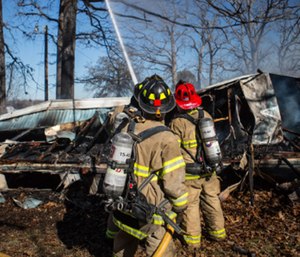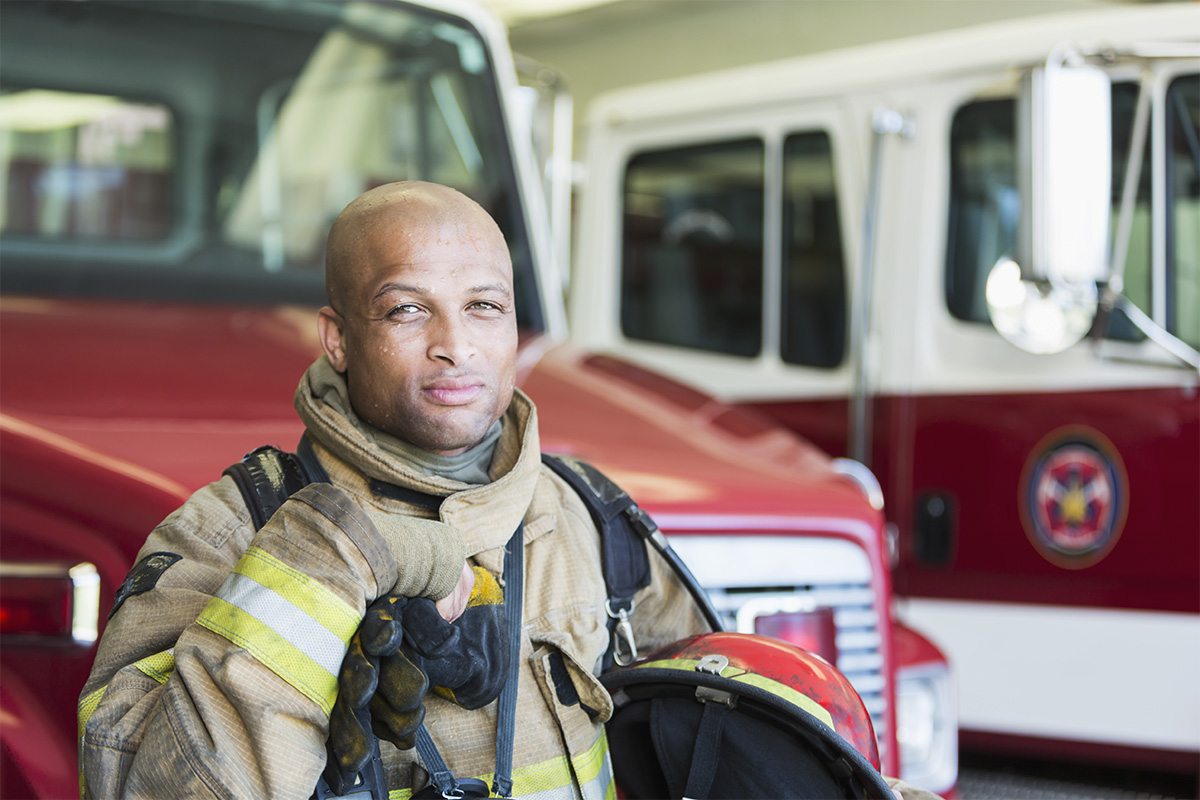To become a firefighter, a high school diploma or equivalent is typically required, along with completion of a fire academy training program. Firefighters also usually undergo emergency medical technician (EMT) training.
Firefighting is a challenging and rewarding career that requires individuals to possess specific skills and knowledge. While there is no specific degree necessary to become a firefighter, a high school diploma or equivalent is typically required. Additionally, aspiring firefighters need to complete a fire academy training program, which focuses on firefighting techniques, emergency response, and safety procedures.
In order to provide emergency medical care, firefighters are also required to undergo EMT training. This training equips them with the necessary skills to assess and stabilize injured individuals at emergency scenes. Obtaining EMT certification can be done through a community college or vocational school program. Overall, a combination of education, training, and physical fitness is essential for individuals pursuing a career in firefighting.
What Does It Take To Become A Firefighter?
Becoming a firefighter requires individuals to meet certain physical, age, and educational requirements.
| Physical requirements for firefighters: |
| – Firefighters are expected to have a certain level of physical fitness and endurance. They must pass physical agility tests that evaluate their strength, stamina, and ability to perform tasks that are physically demanding. |
| Age requirements for firefighters: |
| – The age requirements to become a firefighter may vary depending on the jurisdiction. Generally, individuals must be at least 18 years old to apply. Some fire departments may have an upper age limit for new recruits. |
| Educational requirements for firefighters: |
| – While a high school diploma or equivalent is the minimum educational requirement, some fire departments may prefer candidates with additional education or training. Obtaining a degree in fire science or a related field can provide a solid foundation for a firefighting career. |
To pursue a career as a firefighter, individuals should research the specific requirements set by their local fire departments and ensure they meet those criteria. It is also beneficial to gain relevant experience through volunteering or internships in the field of firefighting.

Credit: www.firerescue1.com
What Degrees Are Necessary For Becoming A Firefighter?
When considering a career in firefighting, many individuals wonder what degrees or training are necessary to pursue this path. While there are no specific degree requirements for becoming a firefighter, obtaining certain degrees can provide a strong foundation for this profession.
Associates Degree in Fire Science: An associates degree in fire science is a popular choice for aspiring firefighters. This degree program covers various subjects relevant to firefighting, such as fire behavior, hazardous materials, and emergency medical services.
Bachelor’s Degree in Fire Science: A bachelor’s degree in fire science is another option for those looking to advance their firefighting career. This degree offers a deeper understanding of fire prevention, investigation, and advanced rescue techniques.
Other Relevant Degrees: While not specific to firefighting, other degrees can also be beneficial. Degrees in emergency management, public safety, or even general education can provide valuable knowledge and skills that complement the work of a firefighter.
What Training Is Necessary For Firefighters?
Firefighters require a combination of training and education to prepare for their challenging career. One essential aspect is fire academy training, which provides a comprehensive understanding of firefighting techniques, safety protocols, and equipment operation. This training encompasses classroom instruction as well as hands-on practice to develop skills in fire suppression, search and rescue, ventilation techniques, and more.
In addition to fire academy training, firefighters often pursue certification as an Emergency Medical Technician (EMT). This certification allows them to administer basic medical assistance at emergency scenes, enhancing their ability to provide life-saving care.
Furthermore, hazardous materials training is crucial for firefighters, as they frequently encounter situations involving dangerous substances. This training equips them with the knowledge and skills to identify, handle, and mitigate the risks associated with hazardous materials incidents.
By completing these necessary educational and training requirements, individuals can acquire the skills and knowledge needed to embark on a fulfilling career as a firefighter, making a vital contribution to their communities.
Are There Any Specialized Areas Of Training For Firefighters?
When it comes to becoming a firefighter, there are various degrees and trainings that are necessary. While a specific degree is not required, many aspiring firefighters choose to obtain a degree in fire science, public safety, or a related field. These degrees provide a foundational understanding of fire behavior, emergency response, and critical thinking skills.
In addition to formal education, firefighters undergo a rigorous training process. There are also specialized areas of training for firefighters to further enhance their skills. One such area is technical rescue training, which focuses on the safe extraction of individuals from hazardous situations such as collapsed buildings or confined spaces.
Another specialized training area is wildland firefighting training, essential for those aspiring to work in forest or wilderness firefighting. This training equips firefighters with the knowledge and skills necessary to combat wildfires in remote and challenging environments.
Furthermore, arson investigation training is another crucial area that prepares firefighters to investigate and determine the causes of fires. This training is vital in preventing and combating arson, a malicious act that poses a serious threat to public safety.
In conclusion, while there is no specific degree required to become a firefighter, obtaining a degree in fire science or a related field can be beneficial. Additionally, firefighters undergo specialized trainings such as technical rescue training, wildland firefighting training, and arson investigation training to further develop their skills in specific areas.
Conclusion
To become a firefighter, obtaining the right degrees or training is essential. A high school diploma is typically the minimum requirement, but some firefighters pursue higher education in fire science or related fields. Additionally, completing a fire academy training program is crucial to gain the necessary skills and knowledge.
The path to becoming a firefighter may vary, but the ultimate goal remains the same — to protect and serve our communities in times of crisis.







